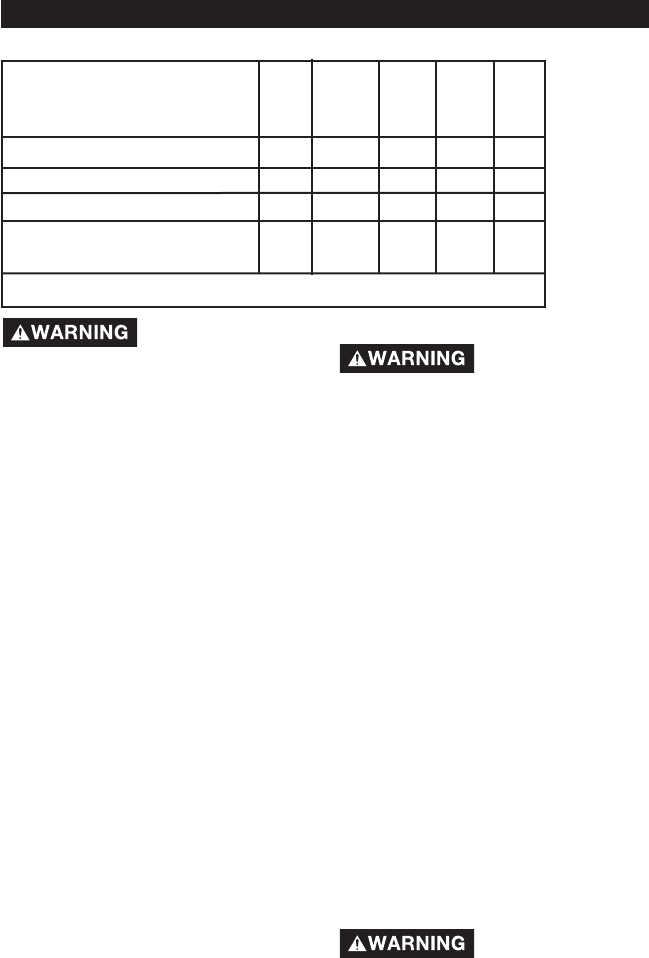
16- ENG
A14411
MAINTENANCE
Customer Responsibilities
Daily
or after
each
use
Before
each
use
●
●
●
Every
40
hours
Every
100
hours
Yearly
●(1)
1- more frequent in dusty or humid conditions
Check Safety Valve
Drain Tank
Air Filter
NOTE: See "Operation" section for
the location of controls.
To ensure efficient operation and lon-
ger life of the air compressor outfit, a
routine maintenance schedule should
be prepared and followed. The fol-
lowing routine maintenance schedule
is geared to an outfit in a normal
working environment operating on a
daily basis. If necessary, the schedule
should be modified to suit the condi-
tions under which your compressor is
used. The modifications will depend
upon the hours of operation and the
working environment. Compressor
outfits in an extremely dirty and/or
hostile environment will require a
greater frequency of all maintenance
checks.
Risk of Unsafe
Operation. Unit
cycles automatically when power
is on. When servicing, you may
be exposed to voltage sources,
compressed air, or moving parts.
Before servicing unit unplug or
disconnect electrical supply to the
air compressor, bleed tank of pres-
sure, and allow the air compressor
to cool.
To Check Safety Valve
Risk of Bursting.
If the safety valve
does not work properly, over-
pressurization may occur, causing
air tank rupture or an explosion.
1. Before starting compressor, pull
the ring on the safety valve to
make sure that the safety valve
operates freely. If the valve
is stuck or does not operate
smoothly, it must be replaced
with the same type of valve.
Air compressor pump intake
and exhaust valves
●
To Drain Tank
1. Set the On/Auto/Off lever to
"OFF" and unplug unit.
2. Pull the regulator knob out and
turn counterclockwise to set the
outlet pressure to zero.
3. Remove the air tool or accessory.
4. Pull ring on safety valve allowing
air to bleed from the tank until
tank pressure is approximately
20 psi. Release safety valve ring.
5. Drain water from air tank by
opening drain valve (counter-
clockwise) on bottom of tank.
Risk of Bursting.
Water will con-
dense in the air tank. If not drained,
water will corrode and weaken the
air tank causing a risk of air tank
rupture.


















